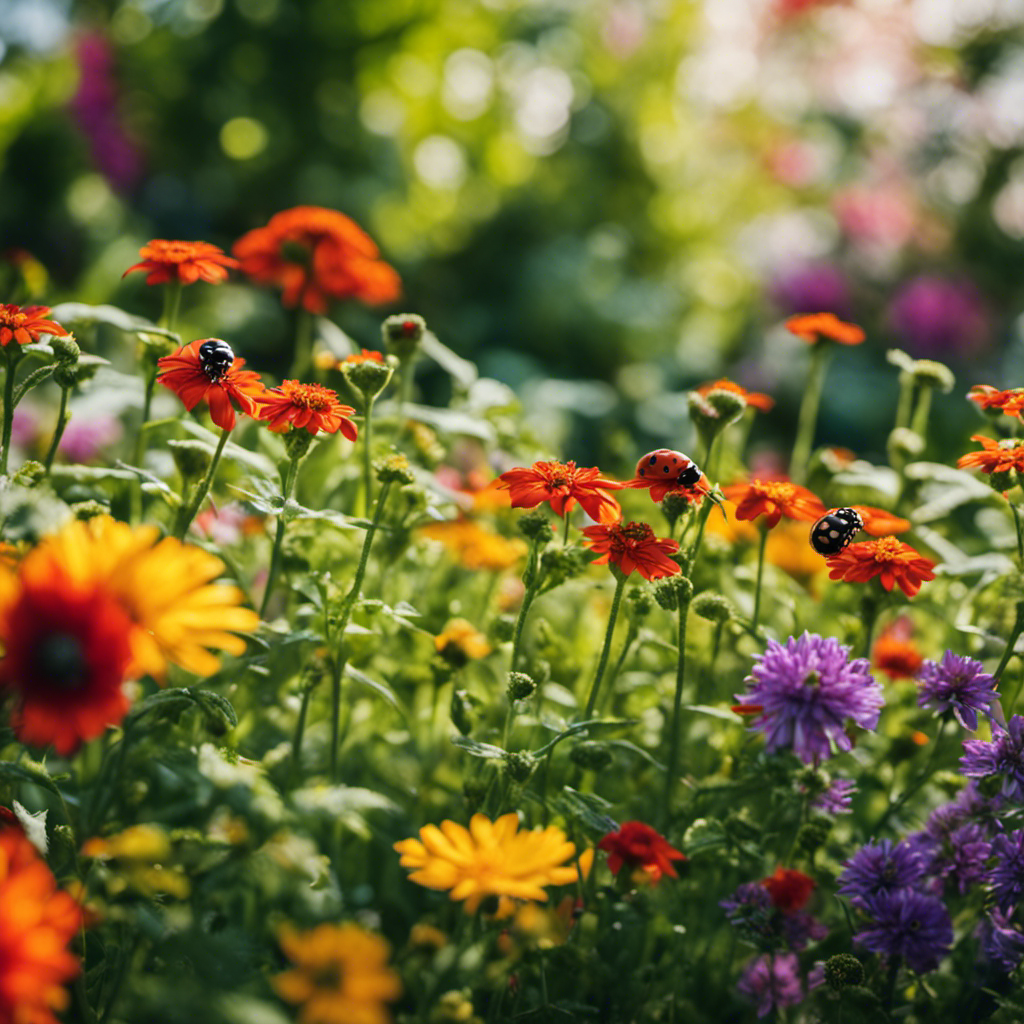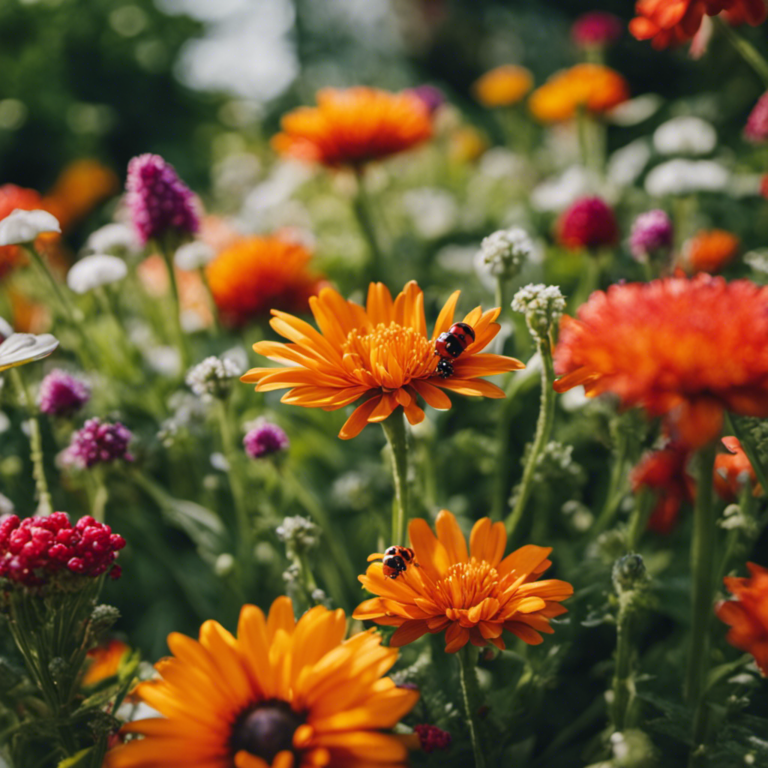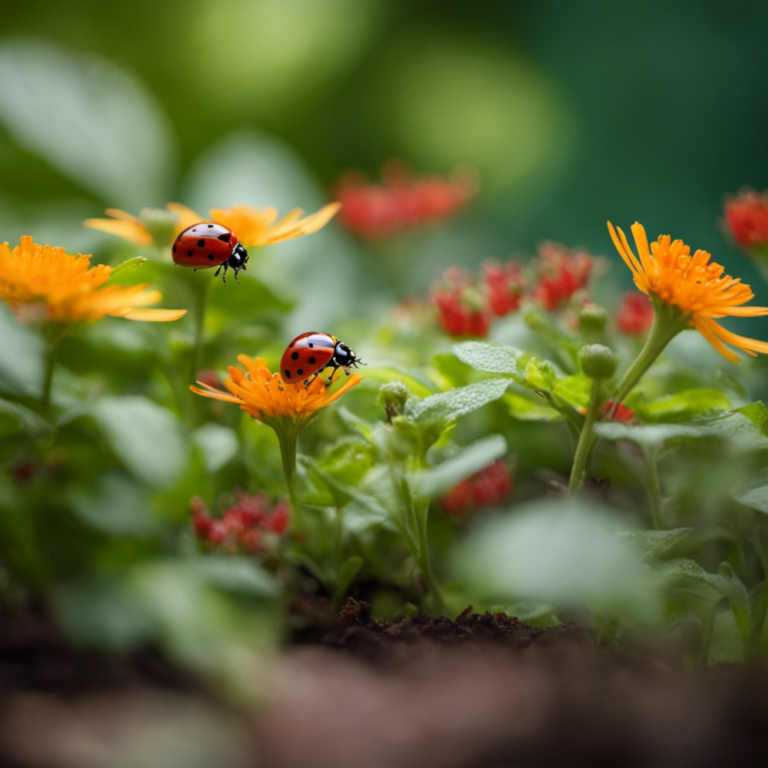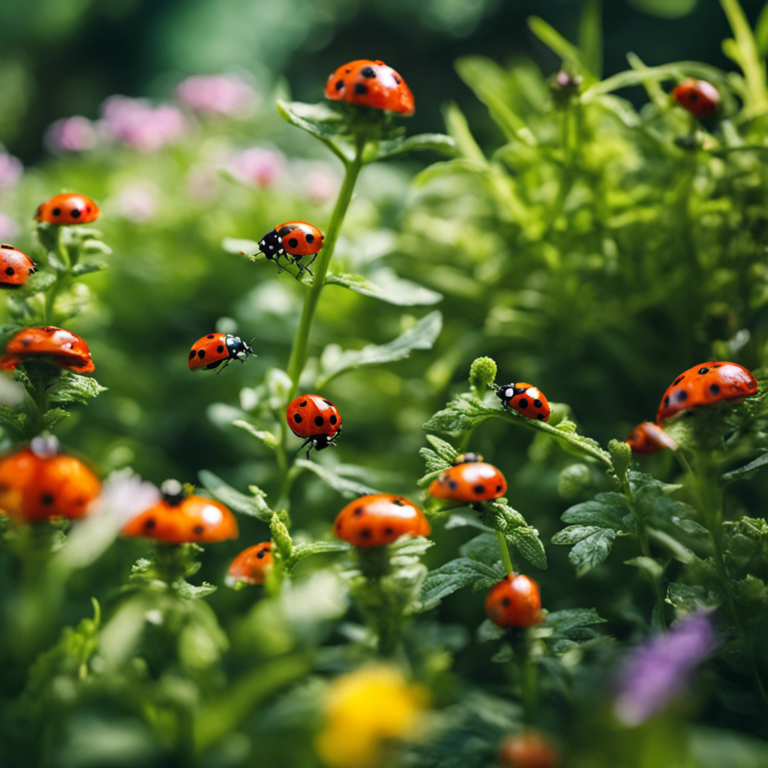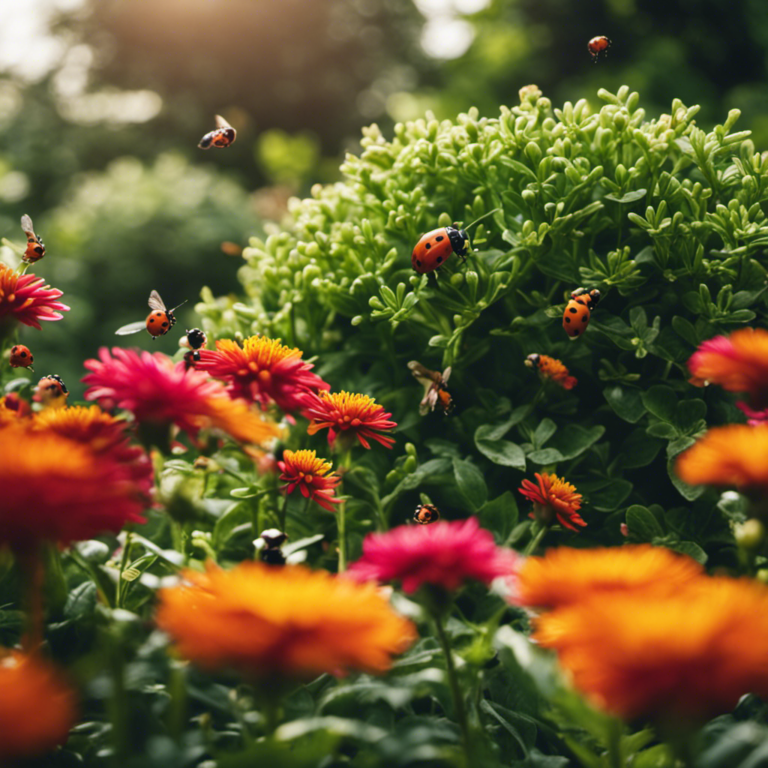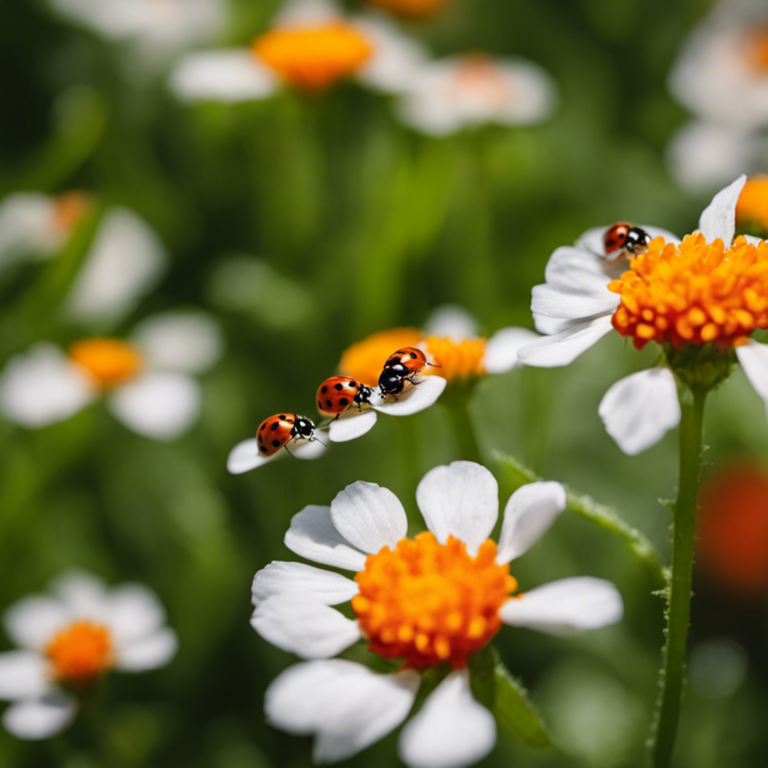Pest problems in your garden? In this gardener’s guide, we’ll explore the battle between eco-friendly and traditional pest control methods.
You’ll discover effective strategies to protect your plants while minimizing harm to the environment. From natural insect repellents to companion planting and homemade organic sprays, we’ll provide you with sustainable solutions to take control of your garden.
These methods will not only benefit you but also contribute to the well-being of Mother Nature.
So, let’s get started and find the best approach for your garden.
Key Takeaways
When it comes to pest control in your garden, using eco-friendly methods is not only effective but also sustainable. By utilizing natural insect repellents, attracting beneficial insects, practicing companion planting, creating homemade organic sprays, and implementing physical barriers and traps, you can effectively manage pests without causing harm to the environment. So why not embrace the green approach and join the growing community of gardeners who are making a positive impact on our planet?
It’s time to leave behind outdated methods and adopt a more eco-friendly way of gardening.
Natural Insect Repellents
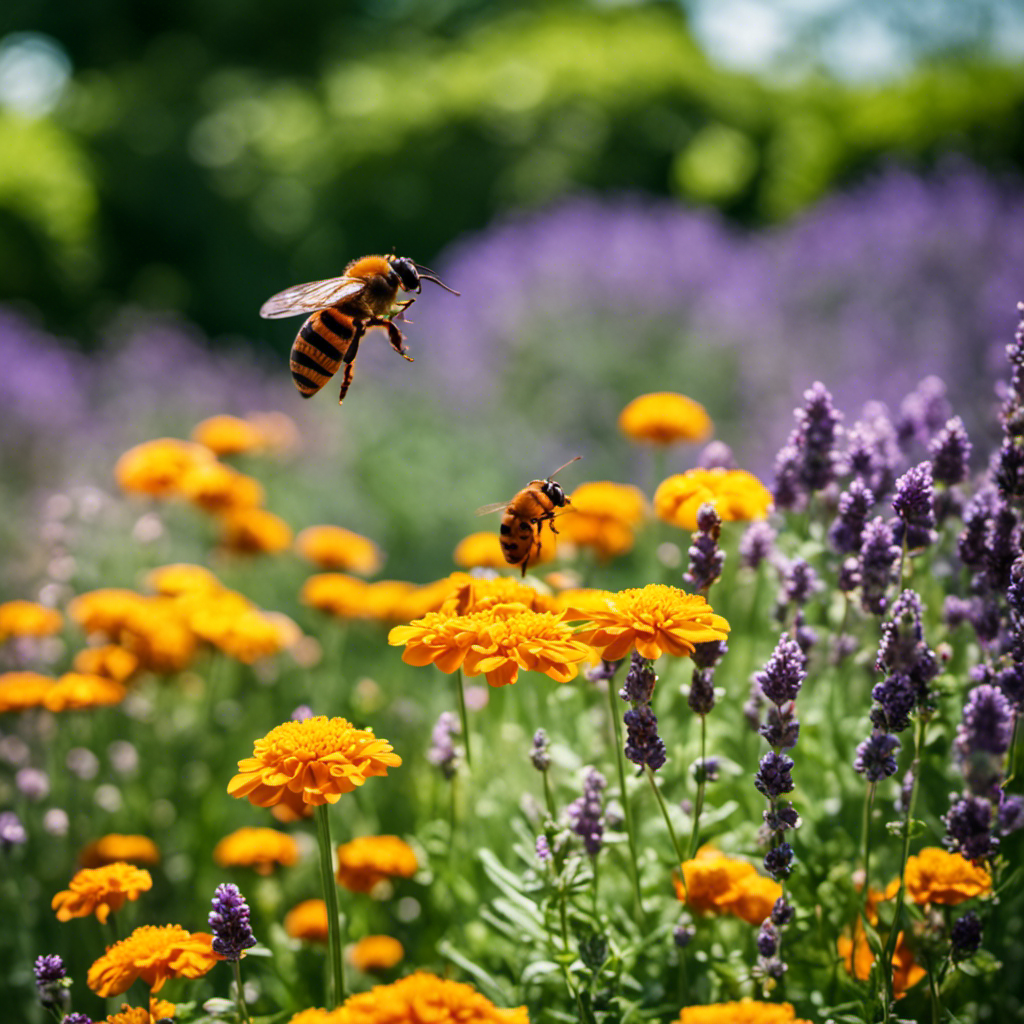
Protect your garden from pests by using natural insect repellents.
Instead of relying on chemical-based products, you can opt for eco-friendly alternatives like essential oils. Essential oils are derived from plants and contain natural compounds that repel insects.
Citronella, peppermint, and lemongrass are effective against a wide range of garden pests, including mosquitoes, ants, and aphids. Dilute these oils with water and spray them directly onto plants or use diffusers to create a protective barrier around your garden.
Not only are essential oils safer for the environment, but they also emit a pleasant scent. By choosing these eco-friendly options, you can safeguard your garden without harming beneficial insects or polluting the soil and water sources.
Beneficial Insects for Pest Control
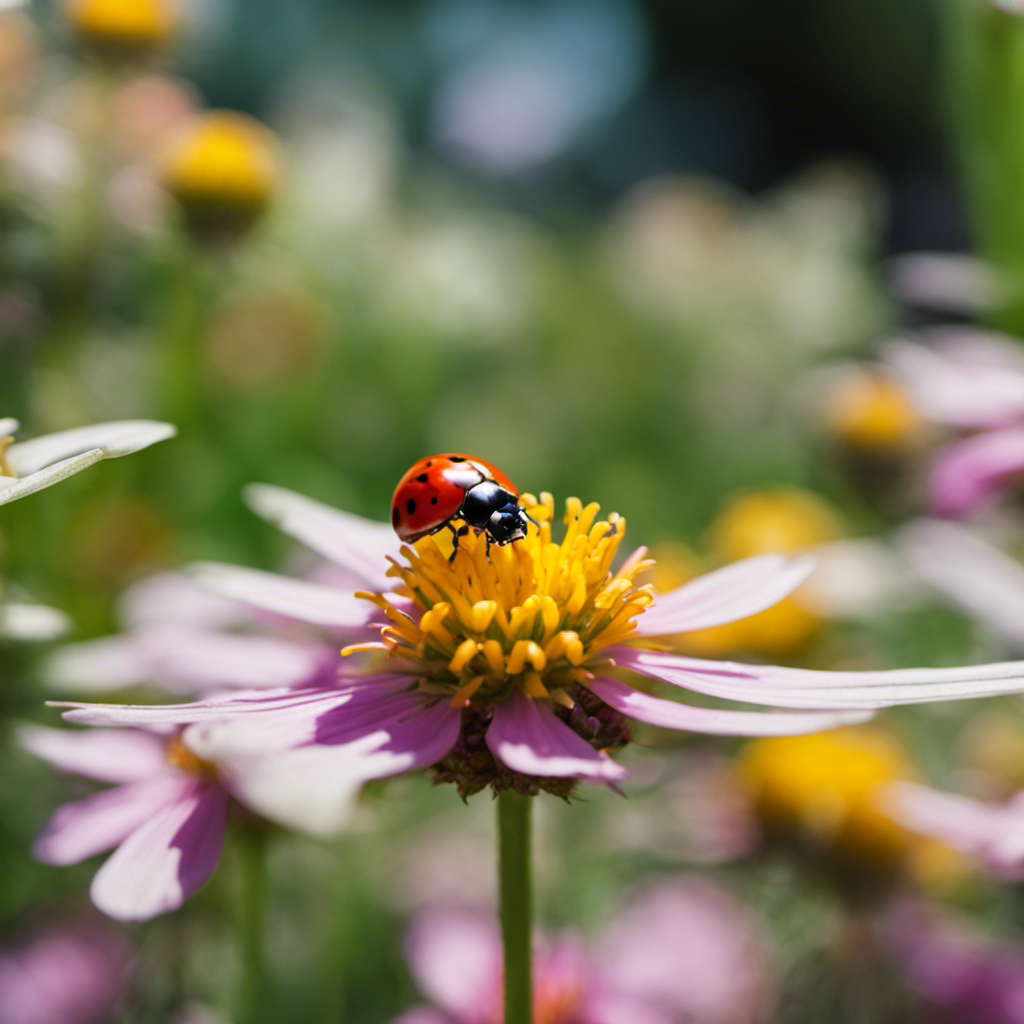
Invite beneficial insects into your garden to naturally control pests. By using integrated pest management techniques, you can create a balanced ecosystem where beneficial insects thrive and keep harmful pests in check.
Here are two lists of beneficial insects and their pest-specific biological controls:
-
Predatory Insects:
- Ladybugs: These voracious eaters feed on aphids, mealybugs, and scale insects.
- Lacewings: They prey on aphids, mites, and caterpillars.
-
Parasitic Insects:
- Parasitic Wasps: These tiny wasps lay eggs in or on pests like caterpillars, aphids, and whiteflies, eventually killing them.
- Nematodes: These microscopic worms attack soil-dwelling pests like grubs, weevils, and root maggots.
Introducing these beneficial insects into your garden reduces the need for chemical pesticides, ensuring a healthier and more sustainable approach to pest control. Remember to provide the right habitat and food sources for these helpful allies, such as flowering plants and water sources.
Companion Planting for Pest Prevention
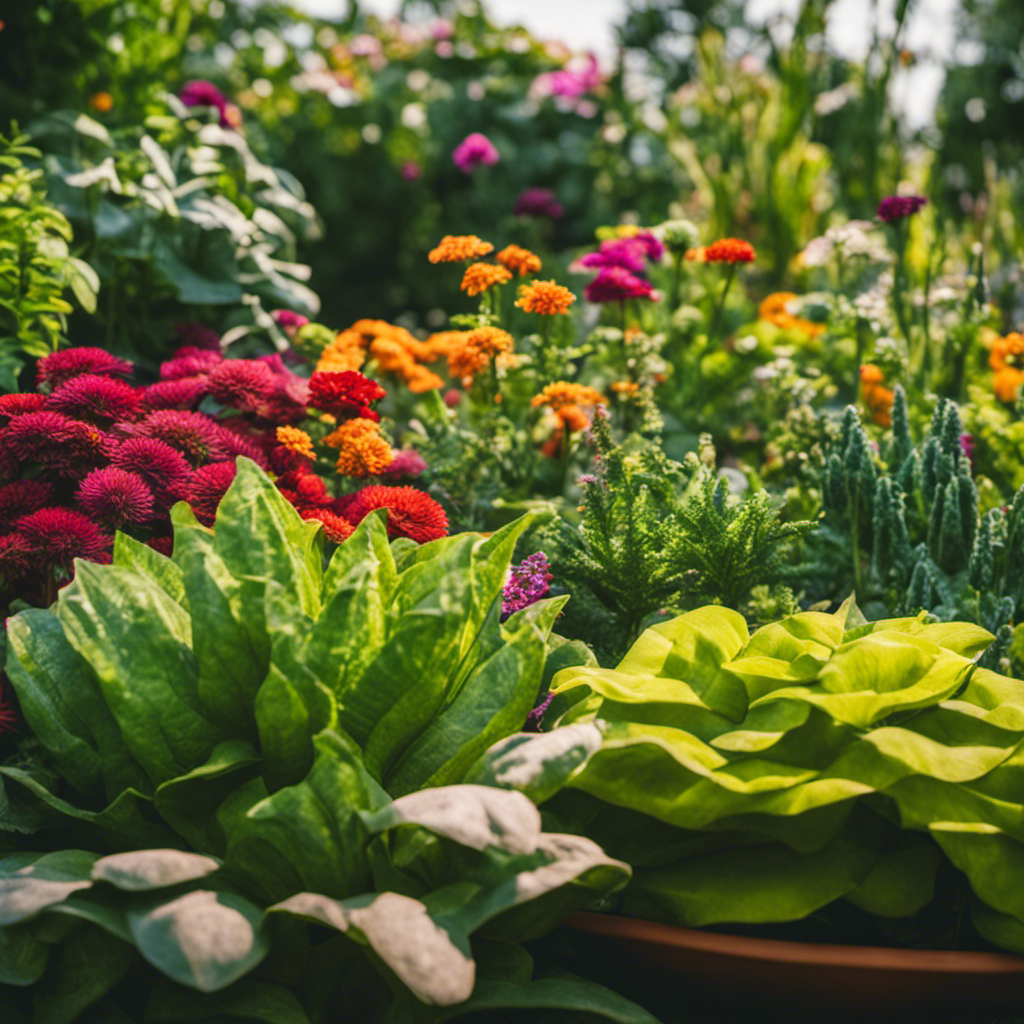
Companion Planting for Pest Prevention
To improve your garden’s ability to prevent pests, consider using companion planting techniques. Companion planting involves growing different plants together that can benefit each other by repelling pests or attracting beneficial insects.
One of the main advantages of companion planting is its ability to deter pests from your garden. Certain plants, like marigolds, naturally repel nematodes, aphids, and other harmful insects. By planting marigolds alongside your vegetable crops, you can help protect them from pest damage.
Additionally, plants like basil can attract beneficial insects such as ladybugs and lacewings, which feed on pests like aphids and caterpillars.
Homemade Organic Pest Sprays

Make your own organic pest sprays using common household ingredients.
Homemade organic pest sprays are a safe and natural alternative to chemical pesticides, offering an effective way to control pests without harming the environment.
Here are a few simple recipes you can try:
-
Garlic and Pepper Spray: In a quart of water, mix two cloves of minced garlic and one teaspoon of cayenne pepper. Allow the mixture to sit for a day, then strain it and spray it on your plants. The strong smell and taste of garlic and pepper act as natural deterrents against pests.
-
Soap and Water Spray: Combine a gallon of water with one tablespoon of liquid dish soap. This basic solution can be sprayed directly on pests like aphids and mites, suffocating them and protecting your plants from further damage.
Physical Barriers and Traps for Pest Management
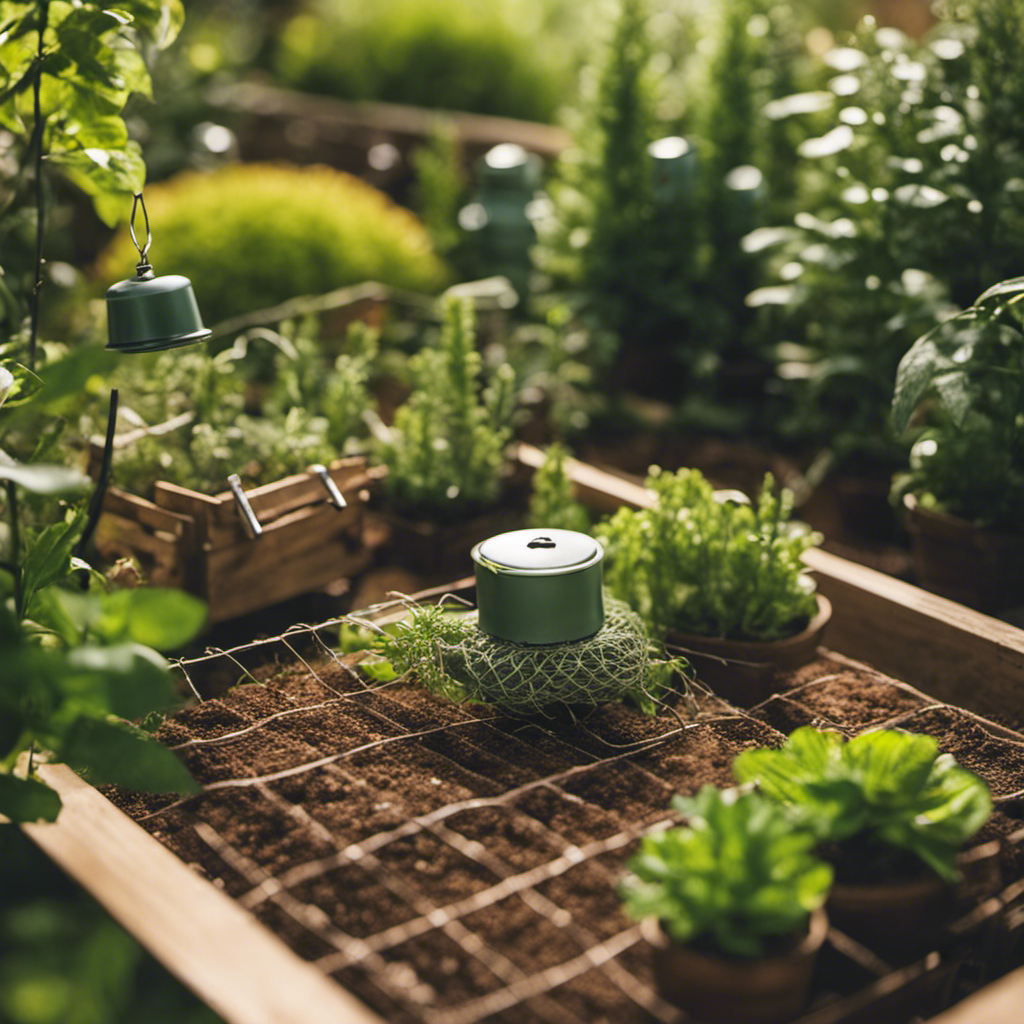
Implementing physical barriers and traps is a proactive and effective way to manage pests in your garden. Pest exclusion involves using fences, screens, or netting to create barriers that prevent pests from accessing your plants. By installing these barriers, you can keep pests out and protect your garden.
Traps are another option for pest management. Using non-toxic baits, traps attract pests and capture them, allowing you to safely remove them from your garden. By relying on physical barriers and traps, you can significantly reduce the presence of pests without resorting to harmful chemicals.
This approach ensures a healthier and more natural environment for your garden.
Conclusion
When it comes to pest control in your garden, using eco-friendly methods isn’t only effective but also sustainable.
By utilizing natural insect repellents, attracting beneficial insects, practicing companion planting, creating homemade organic sprays, and implementing physical barriers and traps, you can effectively manage pests without causing harm to the environment.
So why not embrace the green approach and join the growing community of gardeners who are making a positive impact on our planet?
It’s time to leave behind outdated methods and adopt a more eco-friendly way of gardening.
